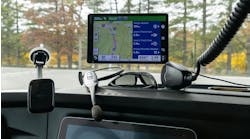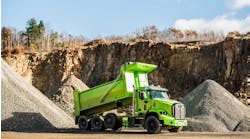There has been a lot of talk about electrification and autonomous trucks in the news lately. This coverage made me think about whether the focus on energy efficiency increases or decreases when those so-called disruptive technologies come into widespread use.
Take the electrification of trucks. On the one hand with electric trucks the reliance on fossil fuel goes down. That’s a good thing. But, on the other hand, batteries add weight — lots of weight — to trucks, are expensive and take quite a bit of time to recharge. And, range anxiety looms very large, as it is easy to carry two to three days of diesel fuel on a truck, but having that much stored electricity, hydrogen, or whatever is difficult.
The question is will a truck that gets more miles per KW-hr be even better from a fuel efficiency standpoint than today’s most fuel-efficient truck? Good question and something to think about as we move forward and see developments in the electric truck space.
With autonomous trucks, productivity goes way up and asset utilization skyrockets especially if there is an increase in allowable driving hours since the driver will be sitting most of the time not actually engaged in operating the vehicle or in some cases the driver may even be eliminated altogether. But as you increase the operating hours of the truck, fuel again becomes the Number One expense. And that adds up to a big number even at $2 per gallon of diesel.
These are exciting times for the trucking industry with all these disruptive technologies being evaluated. For me the bottom line is that regardless of what the power source for the truck is in the future, energy efficiency will still matter. And that is good news for all of us.



